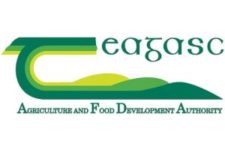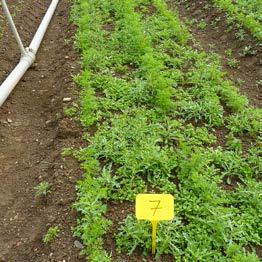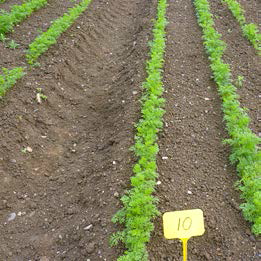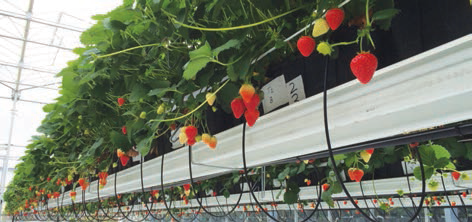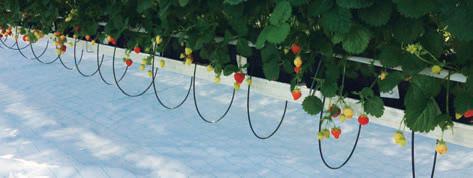SUMMARY OF KEY STEPS TO TAKE IF YOU ARE EXPORTING PLANT MATERIAL ON WOODEN PALLETS TO UK & NI IN THE EVENT OF A NO-DEAL BREXITREGISTER FOR AN EORI NUMBER This is a unique reference number that every business will need to have for import/ export declarations when trading with a third country. It only takes a matter of minutes to register online via revenue.ie FIND THE COMMODITY CODES FOR EACH PRODUCT Commodity codes are based on the characteristics of the product. These codes will also be required for your import declarations and will help you to identify the relevant tariff rates. For more information visit prepareforbrexit.com UK TEMPORARY TARIFF RATES Once the commodity codes have been found, this list can then be checked to see the possible tariff rate. CONSIDERATIONS It is important for companies to consider the following: 1. Do you have the capability to complete your declarations in-house or do you plan on using a customs broker? For further information contact the BREXIT team at the Department of Agriculture, Food & the Marine to see if there are any more requirements specifically related to horticulture. Visit www.agriculture.gov.ie/brexit ISPM NO.15 AND WOOD PACKAGING MATERIAL (WPM) REQUIREMENTS IN THE EVENT OF A ‘NO-DEAL’ BREXIT WHAT IS ISPM NO.15? ISPM No. 15 does not currently apply the Ireland-UK trade. In the event of a No-Deal Brexit, the UK will leave the EU and become a third country (i.e. a non-EU Member State) on the 31st of October 2019. ISPM NO.15 AND THE EXPORT OF GOODS USING WPM FROM IRELAND TO THE UK Wood Packaging Material (WPM) including pallets, crates and dunnage, used in the transport of goods moving from Ireland to the UK does not currently need to meet ISPM No.15 requirements. In the event of a ‘no deal’ Brexit the position of the UK Government is “In the event of no deal, all WPM moving between the UK and the EU must meet ISPM15 international standards by undergoing heat treatment and marking. All WPM may be subject to official checks either upon or after entry to the EU. Checks on WPM will continue to be carried out in the UK on a risk-targeted basis only. The plant health risk from WPM imported from the EU is not expected to change as a result of an EU exit. For more information visit, www.gov.uk (Guidance/importing-and-exporting-plants-and-plant-products-if-theres-no-withdrawal-deal) ISPM NO.15 AND THE IMPORT OF GOODS USING WPM FROM UK TO IRELAND The EU has indicated the following regarding imports into the EU. “As of the withdrawal date, the introduction of plants, plant products and other objects from the United Kingdom into the EU-27 will be governed by this Directive (Council Directive 2000/29/EC). This is, in particular, relevant for the introduction into the EU of wood packaging material: such wood packaging, whether or not actually in use for the transport of objects of all kinds, has to be compliant with a treatment and mark as specified in the FAO International Standard for Phytosanitary measures No 15 (‘ISPM 15’)”. KEEPING UP TO DATE CONTACTS AND FURTHER INFORMATION ● DAFM & EU Brexit information is available at www.agriculture.gov.ie/brexit and Further information on ISPM No.15 is available at Any queries in relation to this matter can also be sent by email to ispm15@agriculture.gov.ie ✽ |
TRIAL ON NEW WEED CONTROLMEASURES IN CARROTS, CELERY, AND PARSNIPCarrot, celery and parsnip growers lost linuron in the middle of 2018. This has been one of their key herbicides for the past number of decades. The purpose of the trial was to test out possible replacements for Linuron. With this in mind Teagasc set up a series of replicated trials at Kinsealy in 2019 to test out new actives: Emerger, Flexidor and Hurricane. The results were interesting. Emerger worked better than expected and will be a possible replacement for linuron in a tank mix with Stomp and Gamit in carrot, and with Stomp and Goltix in parsnip. Flexidor caused crop damage at higher rates in both carrot and parsnip. Hurricane, a herbicide widely used in cereals, worked well in parsnip but caused some foliar scorch in carrot. A tank mix of Defy and Emerger was the best of the treatments in celery. We also looked at a number of herbicide combinations on leeks with the best result coming from Wing P a week after planting followed a week later by Defy and Lentagran. Growers who visited the trials were very interested in the results and expressed the wish to see them repeated in 2020. Further information is available if you contact Stephen Alexander or Leo Finn at Teagasc Horticulture Development Department. ✽ |


